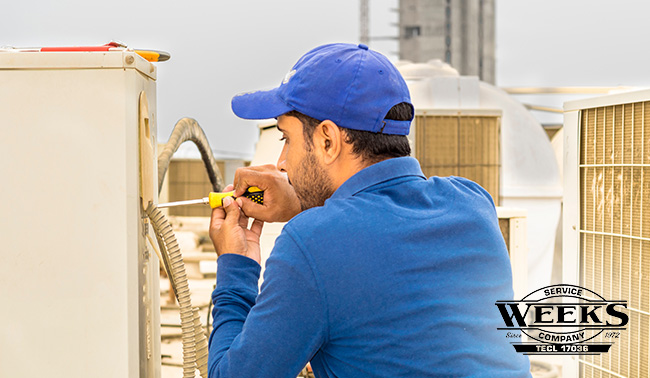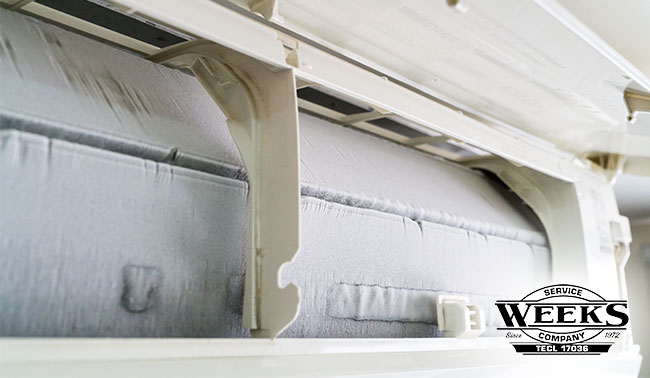
Your central heating and cooling system is a vital part of your home. It keeps the indoor temperature to your liking and, while doing so, consumes more energy than any other appliance. Because of how necessary it is to have proper heating and cooling, it’s important to learn about how the system works—and the pros at Weeks Service Company are here to provide some insight!
How Does Central Cooling Work?
The most common central cooling system you will come across is one that is made up of two units. The outdoor unit consists of the compressor and condenser coil. Indoors, you have the evaporator coil located in the air handling unit. A cooling agent called refrigerant loops through these coils, frequently changing from liquid to gas and vice versa.
The air conditioner sucks warm air from inside your home and blows it over the evaporator coil. The liquid refrigerant inside the evaporator coil absorbs heat from the air and transforms into gas. The air, now cool, enters back into your home through vents with the help of fans. The gaseous refrigerant makes its way to the outdoor unit where the compressor pressurizes the gas and pushes it to the condenser. The condenser liquefies the refrigerant once more. As a result, heat is radiated and dissipated with the help of fans.
How Does Central Heating Work?
There are two main types of central heating systems. Forced-air systems and gravity systems—we will focus on the forced-air system, because it is the most common one.
A forced-air central heating system can be powered by gas or electricity. Usually, a heat exchanger is heated with the help of a gas burner or electrical components. Cold indoor air blows over the heat exchanger to be heated, with the help of air handler fans. Then, warm air blows through the ducts, while any combustion products are released out of the building through a flue pipe.
Maintain Your Central Heating and Cooling System with Weeks Service Company
Now that you know more about your HVAC system, you can take better care of it. A good rule of thumb for your outdoor condenser is to keep up with routine maintenance and change the air filter regularly. For more thorough maintenance, get in touch with a pro from Weeks Service Company. Call us today at 281-738-1362 or fill out a service request form online!


